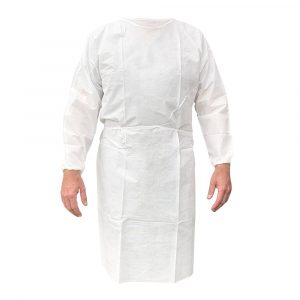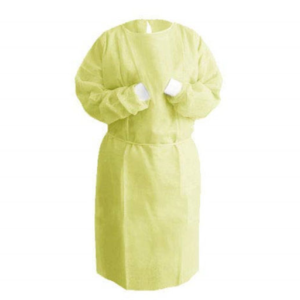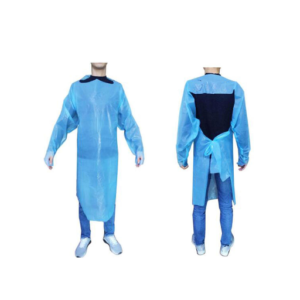Impermeable (waterproof) gowns or aprons are essential for preventing contamination of care workers’ clothes and skin. They are used when there is a risk of splashes or sprays of blood or body fluids, such as during vomiting or diarrhoea. Gowns and aprons are also worn when caring for individuals with infections spread by contact, droplet, or airborne routes.
Golden Rules for Gowns or Aprons:
- Hand hygiene must be performed before and after using gowns or aprons.
- Gowns should fully cover the torso from neck to knees, arms to the end of wrists, and wrap around the back. Tie all fastenings on the gown and secure at the back.
- Remove and dispose of the gown as soon as care is completed.
- Plastic aprons can be used:
- When clothes may be exposed to blood or body fluids and there is a low risk of arm contamination.
- When the care worker’s clothes might get wet (e.g., when showering a resident/client).
- Aprons should be used once and disposed of immediately after care is completed.
Gowns and aprons are crucial components of personal protective equipment and essential work practices.



